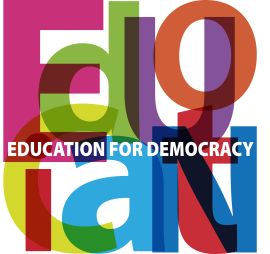Representatives of the Romanian Ministry of Education and Higher Education Institutions participated in a workshop on the integration of competences for democratic culture in initial teacher education on 16 – 17 December 2024 in Strasbourg. The workshop was organised by the Council of Europe jointly with the European Wergeland Centre and the Romanian Social Development Fund within the EEA/Norway Grants Programme “Local Development, Poverty Reduction and Enhanced Roma Inclusion” in Romania.
Villano Qiriazi, Head of the Council of Europe Education Department, welcomed the participants and introduced them to the Council of Europe extensive work in education and current priorities, based on the Council of Europe Education Strategy 2030 and the decisions of the 26th Ministerial Conference of September 2023. This overview helped the participants understand the importance of strengthening the democratic and civic mission of education in the current socio-political context in Europe.
Octavia Bors-Georgescu, Adviser to the Minister of Education of Romania, presented the strengths and emerging needs for civic education in Romania and outlined some key reforms introduced by the Ministry recently intended at making the competences for democratic culture more prominent in the education system of Romania.
Starting from this European and national context, the participants delved into examining in closer detail the Council of Europe Reference Framework of Competences for Democratic Culture and the ways in which this flagship Council of Europe conceptual model can be integrated in initial teacher education programmes in Romania. The discussion was enriched by presentations from several European universities about their experiences of integrating the RFCDC – the University of Andorra, the State Pedagogical University of Moldova “Ion Creanga”, the University of Athens and the University of Sarajevo.
At the end of the workshop, participating universities identified some initial practical steps to integrate the competences for democratic culture in their initial teacher education programmes with a view to better equipping future teachers with the knowledge and skills needed for an inclusive and democratic approach to teaching.
The Council of Europe acts as International Partner Organisation in the EEA/Norway Grants Programme “Local Development, Poverty Reduction and Enhanced Roma Inclusion” in Romania. In this capacity, the Council of Europe has provided thematic expertise and support in the key areas tacked by the Programme, including in the area of quality inclusive education.




